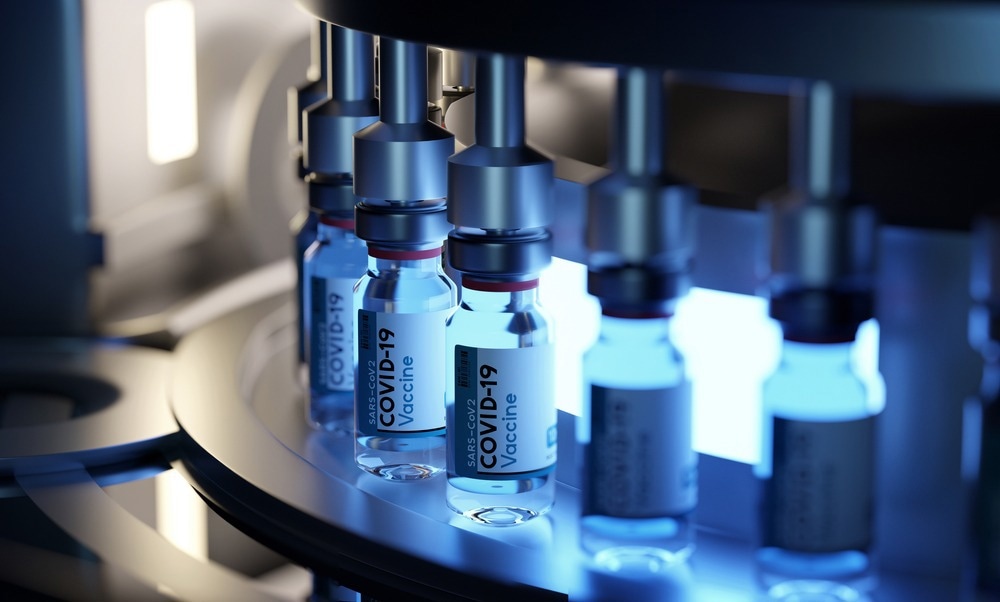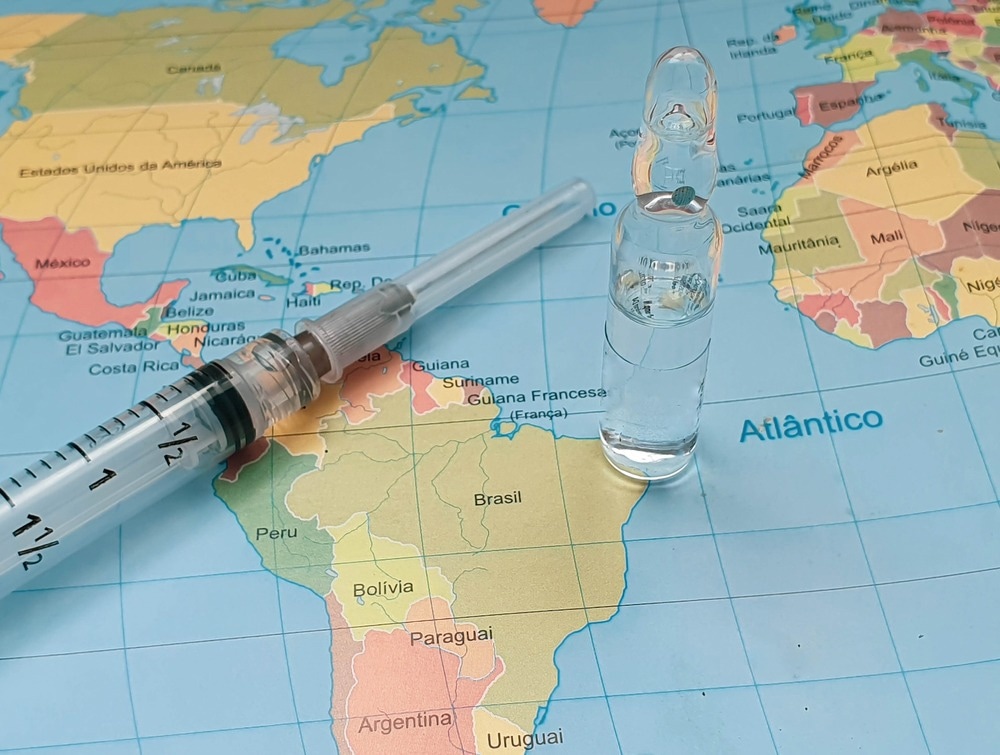The benefits of vaccine investment
The vaccine manufacturing pathway
Funding research and development
Investing in global distribution of vaccines
Funding strategies; push versus pull funding
References
The benefits of vaccine investment
Vaccinations are effective tools to reduce the detrimental effects of infectious disease, decrease child mortality rates and eradicate major pathogens and viruses such as smallpox.
The protective effects of vaccines have particularly been highlighted during the recent COVID-19 pandemic. Countries able to offer the vaccine demonstrate lowered infection rates and have kick-started the recovery of their economies.
The COVID-19 pandemic has also highlighted the need to proactively develop medical countermeasures to novel pathogens, in addition to advancing supply and manufacturing capacities to meet global demands.
Investing in vaccine manufacturing has both economic and societal benefits, in addition to protecting human health and limiting infection spread.

Image Credit: solarseven/Shutterstock.com
The vaccine manufacturing pathway
Although the development of effective vaccines may have previously taken several years, the first phase 1 trial of a COVID-19 virus vaccine candidate was launched only 63 days after the SARS-CoV-2 sequence was released.
Less than 12 months after the World Health Organization (WHO) declared a global pandemic, the first patients had been vaccinated for COVID-19 outside of clinical trials, emphasizing that global responses can produce and distribute vaccine within mere months.
Vaccine development often begins with the pathogen being sampled and sequenced. Delivering immunity of the pathogen is achieved via a variety of vaccine subclasses depending on their micro-organism or antigen preparation and include; live-attenuated (containing weakened pathogen), inactivated, recombinant (produced through recombinant DNA technology), DNA (containing antigen encoding DNA), subunits (containing protein subunits of the pathogen protein), conjugated (containing weak antigens with a stronger carrier antigen), toxoids (containing a pathogens toxin as an antigen) or newly utilized RNA.
For instance, production may feature isolation of the pathogen from infected samples, used as such for smallpox vaccines, the use of cell culture technology in bioreactors, as currently used by GlaxoSmithKline and Sequirus to generate influenza vaccines, or purification of recombinant antigens expressed in insect cell cultures as recently used by the Protein Sciences Corporation.
Accelerating the timeline of vaccine development is of importance and the advancement of vaccine platform technologies may aid this.
These platforms include the use of an underlying similar mechanism and were successful during COVID-19 vaccine production by using a delivery vector or cell line employed which can be used for multiple target vaccines and are already licensed.
Funding research and development
Governmental agencies such as the National Institute of Health (NIH), supranational bodies including the European Commission and philanthropic foundations such as the Bill & Melinda Gates Foundation have all contributed towards financing vaccine research and development for pathogens which have epidemic potential.
Previously this investment has been criticized as cyclic, with a flurry of funding generated during the surge in demand of vaccines, for instance in response to the 2002 SARS pandemic, but often being followed by years of reduced activity.
Moreover, due to their time-costly and expensive nature, vaccine portfolios of pharmaceutical companies have decreased in comparison to prophylactic drugs.
However, since the world population is expected to continue rising, the increase in the vaccine market is anticipated to increase from $25 billion in 2018 to $100 billion by 2025, leading to an increase in funding interest. To prevent fluctuating financial support, the Ebola outbreak provoked the founding of a public-private partnership; the Coalition of Epidemic Preparedness Innovations (CEPI) which manages funding for vaccines for epidemic diseases.
Such entities attempt to address the worlds unmet need for vaccines and aims to reinforce vaccine research and development. The CEPI has since supported the first phase 1 trial of the COVID-19 vaccine candidate in 2020.

Image Credit: Juliana Verly/Shutterstock.com
Investing in global distribution of vaccines
The cost of vaccines is a major barrier that restricts the global research of vaccinations and since the market is mostly dominated by vaccine manufactures in high-income countries, it is important to consider investment strategies that facilitate fair global access.
Global Alliance for Vaccine and Immunization (GAVI) is the main financier of vaccine programs in low and middle-income countries and supports vaccine delivery and production in developing countries.
In addition, with UNICEF and WHO, have helped support new manufacturing countries such as India, China and South Africa who produce vaccines at competitive low costs, thereby increasing market demand.
Funding strategies; push versus pull funding
Upon identification of diseases with epidemic potential, vaccine development programs involve phase 3 trials which require significant investments. Funding for such projects may comprise of ‘push’ or ‘pull’ funding schemes.
Pull-funding tactics reward outputs and commit to purchasing approved vaccines, for instance Advance Market Commitments (AMC), which includes of a funder committing to purchasing doses of a vaccine following its license and production.
For example, the Gavi COVAX AMC was launched as a financing instrument to support low-income economies and enable access to donor funded covid-19 vaccines. ‘Push-funding’ however includes as upfront grants for research or reimbursing companies for making initial investments, to increase the vaccination portfolio of pharmaceutical companies. Using bond structures allowing money to be raised in capital markets provides an opportunity for high-income countries to support these investments and funds and indirectly aid the manufacturing and distribution worldwide.
The COVID-19 pandemic has exhibited that expediated development of effective and safe vaccines is possible, whilst also highlighting the importance of a consistency of well-funded research and development.
‘Pull-funding’ tactics which rewards outputs and commit to purchasing approved vaccines should be complemented with ‘push-funding’, to increase the vaccination portfolio of pharmaceutical companies.
Using bond structures allowing money to be raised in capital markets provides an opportunity for high-income countries to support these investments and funds and indirectly aid manufacturing and distribution worldwide.
References:
- Rey-Jurado, E., et al. (2018). ‘Assessing the Importance of Domestic Vaccine Manufacturing Centers: An Overview of Immunization Programs, Vaccine Manufacture, and Distribution’. Frontiers in immunology, 9, 26. Doi: 10.3389/fimmu.2018.00026
- Monrad, J. T., Sandbrink, J. B., and Cherian, N. G. (2021). ‘Promoting versatile vaccine development for emerging pandemics’. NPJ vaccines, 6(1), 26. doi: 10.1038/s41541-021-00290-y
- Bloom, D., Cadarette, D., and Tortorice, D. (2020). ‘An ounce of prevention’. [Online] International Monetary Fund. Available at: https://www.imf.org/en/Publications/fandd/issues/2020/09/vaccine-finance-epidemics-and-prevention-bloom (Accessed on 21 August 2022)
- Schäferhoff, M., Yamey, G. and McDade, K. (2020) ‘Funding the development and manufacturing of COVID-19 vaccines: The need for global collective action’. [Online] Brookings. Available at: https://www.brookings.edu/blog/future-development/2020/04/24/funding-the-development-and-manufacturing-of-covid-19-vaccines-the-need-for-global-collective-action/ (Accessed on 21 August 2022)
- Lambert, E. (2021) ‘Big investments in vaccine capacity can help governments save lives and boost economies’. [Online] Uchicago News. Available at: https://news.uchicago.edu/story/big-investments-vaccine-capacity-can-help-governments-save-lives-and-boost-economies (Accessed on 21 August 2022)
Further Reading
Last Updated: Apr 14, 2023